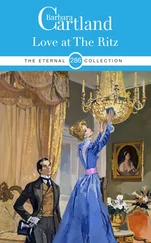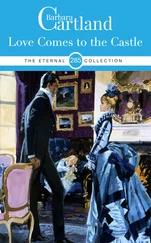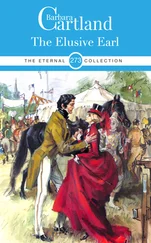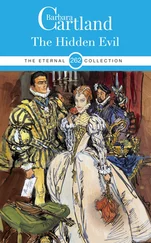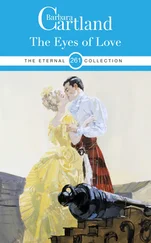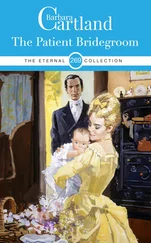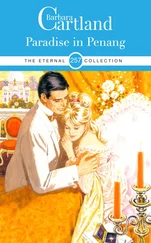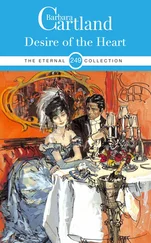“I suppose there’ll be a headless horseman galloping through the kitchen while I’m making pies?” she demanded. “Really Ned!”
“Why are you making pies?”
“Because I’m going to be the housekeeper there.”
“Parson’s daughter? Housekeeper?”
“Even parsons’ daughters have to work to live.”
“Well, you’ll be in the right place to keep him in order. You can make sure he knows what we all need.”
There it was, the burden that was to be laid on the new Earl, the yearning expectations of ‘his’ people, who looked to him for succour and sustenance.
But as she left the shop she was too cheerful to heed its warning.
Since it was early in the year the light was already beginning to fade as she returned to The Grange. So she hastily filled an oil lamp with paraffin and ventured upstairs to the master bedroom.
She soon found it, a grandiose room with painted ceilings and dirty gilt furniture, full of glory at the expense of comfort. A door stood ajar. Pushing it open Rena found herself in a small dressing room with a narrow bed. The Earl’s bags were there, and he’d made some attempt to unpack them, but the bed was bare of sheets and blankets.
Further investigation revealed an airing cupboard containing sheets that were incredibly free from moths. She took out some bed linen and conveyed it to the kitchen, lit a fire inside, and hung the sheets on an old clothes horse in front of it.
Then she put a kettle of water on the top. Now everything was warm and cosy, and the Earl, arriving soon after, stopped in the kitchen door and whistled with admiration.
“Now this is what I call homelike,” he said.
“Sit down,” she said cheerfully. “The kettle will boil soon.”
He drank the tea she set before him with an expression of bliss.
“Sweeter than the sweetest wine,” he said. “I see you’ve been busy.”
“You’re going to be really comfortable tonight. You’ve done the right thing in moving into the dressing room. I can put a small fire in there, but the big room would have defeated me. Can you watch the pots on the range, while I go and make up your bed?”
She gathered up the sheets and departed, returning a few minutes later to find the meal almost ready.
“The Earl really ought to eat in the dining room,” she suggested.
“No thank you,” he replied without hesitation. “We’ll eat out here. What’s the wine cellar like?”
“I’ve never seen it.”
He took the lamp and disappeared, returning a few minutes later covered with cobwebs but with a bottle under his arm and a triumphant smile on his face.
“Glasses!” he intoned. “We’ll dine in style.”
She fetched some glasses from the dining room, cleaned them, and laid them out ceremoniously beside their plates. The Earl uncorked the bottle with a flourish and filled the glasses with a delicious looking ruby red liquid, and they toasted each other.
“To us!” he declared. “To finding each other, and all the wonderful things that are going to happen now!”
“I wonder if they will!” she sighed.
“They will because we’re going to make them. And this magnificent vintage wine is the first wonderful thing. Sip it slowly and with appreciation, for you may never taste the like again.”
Together they sipped.
And together they choked.
“Thunderbolts and lightning!” he exploded. “What is this?”
“Vinegar,” she whispered between gasps. Her eyes were streaming.
They patted each other frantically on the back.
“Miss Colwell, I really am very sorry,” he said hoarsely. “I thought it would have – aaaarh! excuse me – matured over the years. But it’s only soured.”
“You said I’d never taste the like again,” she reminded him. “I only hope you may be right. No, give that to me – ” He was about to pour the wine down the sink but she stopped him. “If what it’s doing to my insides is anything to go by, it’ll probably clean the range very efficiently.”
“You’re a marvel,” he said admiringly.
She poured tea and they both drank it thankfully. Then Rena served the meal and they ate it companionably at the kitchen table.
“The news is getting around the village that you’re here,” she told him. “They’re afraid you’ll be scared off by the ghost. I said that was nonsense because of course there was no ghost.”
“Shame on you!” he said at once. “What is an ancestral home without a ghost. I think it very unkind of you, Miss Colwell, that you should attempt to deprive me of my birth right in this way.”
His droll manner caught her off guard, and she had to peer at him to make sure how to take his words. The gleam of amusement in his eyes was shocking, she decided. But very delightful.
An answering mirth growing inside herself made her say,
“Forgive me, sir. I had forgotten that among every nobleman’s patents of nobility a ghost is essential. However I fear that you may find The Grange’s extensive choice a little too much to cope with. There’s the Floating Lady, the Wailing Lady Anne, the Headless Horseman – or is it the Headless Horse? Well, I expect it amounts to the same.”
“You don’t mean I might meet them all at once?” he asked in alarm. “I mean, one Headless Horseman plus one Floating Lady, a man can cope with, but the rest – have a heart ma’am.”
She fixed him with a baleful eye. “Would you be afraid?”
“Absolutely terrified.”
They laughed together.
“As soon as I’ve washed the dishes I’ll lay the fire in your room, and then I’ll leave,” she said.
“Leave? I thought you were here for good now?”
“I am, that is, I’ll work for you, but perhaps I had better not stay here at night.”
She blushed slightly as she said this, and could not meet his eyes. The village would be shocked if she, an unmarried woman, were to share the house alone with an unmarried man. Especially such a young and attractive man as he was. But delicacy prevented her from referring to the matter, except obliquely.
Luckily he understood. “Certainly,” he said hastily.
“It’s strange,” she mused. “When I left the house this morning I thought I’d be back in an hour. Now it feels like another world.”
He nodded. He’d had that feeling a good deal himself recently.
“So I’ll stay tonight in the vicarage,” Rena said, “and return here very early tomorrow, to make your morning tea.”
He carried the wood upstairs and helped her lay the fire.
“I’ll light it myself when I come to bed,” he said. “Now I’ll escort you home.”
She laughed. “In this tiny village. I’ve walked about in the dark for years.”
“Part of the way then.”
He took her to the duck pond, from where they could see the church spire, bleak against the night sky.
“The moonlight will show me the rest of the way,” she said. “Good night.”
“In that case I’ll take myself to the local hostelry and get to know some of my neighbours. Good night.”
He strode off in the opposite direction and Rena headed around the pond, to the church and through the cemetery. As soon as the vicarage came in sight she stopped.
There were lights in the house.
She began to run, and as she neared she saw a wagon and trunks being unloaded and taken in through the front door. She ran faster, reaching the door out of breath.
“And who, may I ask, are you?” An extremely refined sounding woman appeared in the hall and challenged her.
“I might ask the same of you,” Rena said. “What are you doing in my home?”
“Your home? Our home I think. My brother, the Reverend Steven Daykers, is the new vicar of this parish and this is, I believe, the vicarage?”
Читать дальше



